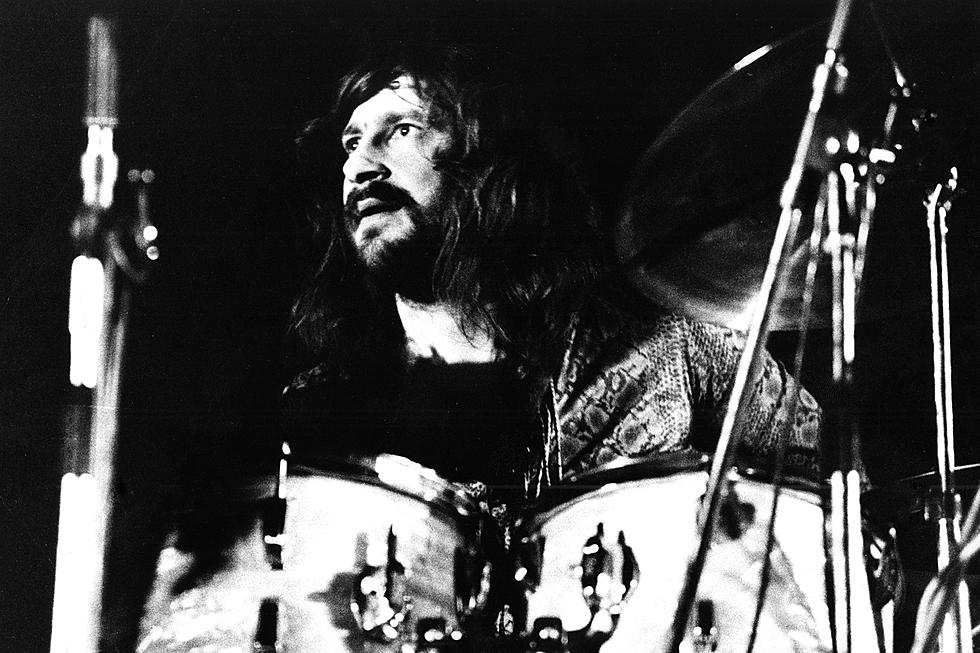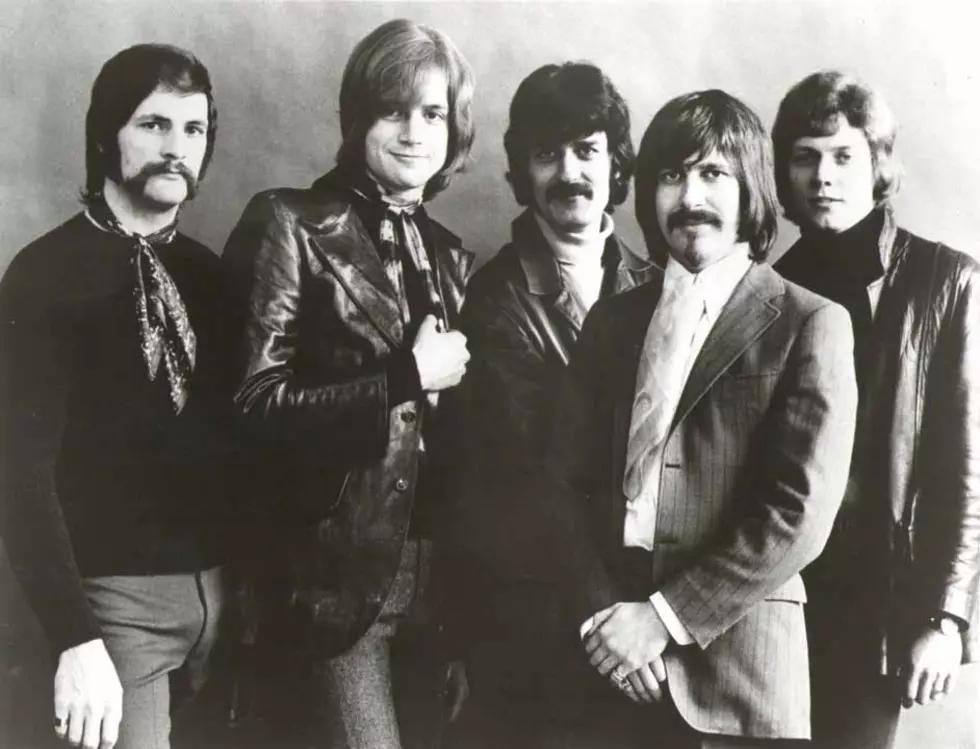
John Lodge’s ‘Incredible Journey’ With Moody Blues in Five Songs
John Lodge has spent more than five decades performing the Moody Blues' time-honored hits and fan favorites, in what the bass-playing vocalist says is an "incredible journey."
But events in recent years made it seem likely that their time on the stage was drawing to a close. Multi-instrumentalist Ray Thomas passed away in early 2018, then drummer Graeme Edge announced his retirement later that year following the group's most recent tour. Sadly, Edge later died, as well.
Lodge and singer-guitarist Justin Hayward have since toured separately, in addition to making solo albums. The Royal Affair and After, a new live album from Lodge, will be released on Jan. 14. The collection features many of the Moody Blues' most-loved songs and some deeper tracks as performed by Lodge and his band during 2019 tour dates.
Lodge recently went in-depth on the forthcoming LP in an exclusive UCR interview. Here are his thoughts on five key tracks. You can watch the entire interview on our YouTube channel.
"Nights in White Satin"
From: Days of Future Passed (1967)
The lyric is one thing, and the emotion in the space in the arrangement of the song. There’s something about the space for me in the song and the emotion that’s floating through the spaces in that song. Things happen in the song, you obviously wouldn’t expect the flute solo and that takes it off in another space. And then the harmonies, you know, “I love you, I love you,” and the harmonies come in, it goes bigger and bigger and bigger – but it’s space that it’s covering. It’s not like sound; it’s space in your head. I think that is why everyone sings along with that part of the song.
"Legend of a Mind"
From: In Search of the Lost Chord (1968)
If you listen to some of the songs Ray sang on his own, his voice was incredible. On rock 'n' roll songs, Ray’s voice was like the energy as well as driving the vocal harmonies. It was really great. But the best thing about Ray was when he was playing in the auditoriums, when we’d get on stage sometimes for three hours. Ray would go into a flute solo for “Legend” and you could be sitting there listening to him for 20 minutes. [Laughs.] Ray would go off on the solo and because I’ve known Ray forever, I know suddenly he’d be thinking: “Oh, I’ve got to get back to the song somewhere!” He’s doing all of these triplets and everything else on the flute. He’d have to work his way back. We would watch and think, “How is he going to get there?”
"Saved by the Music"
From: Blue Jays (1975)
We had different musicians in the studio with us [since Blue Jays was a collaborative album recorded with Hayward outside of the group]. When we’d written the songs, [the big difference] was how you got the different musicians to play them. We [had] a pianist now playing on the record, which is totally unusual, because [Moody Blues bandmate] Mike [Pinder] really was the master of the Mellotron. He was a great pianist as well, by the way. We had someone [else] who just played the piano, so that was different. There was a different drummer. We wanted to go back and reintroduce the Days of Future Passed feel as well, so we used Peter Knight and the orchestra, so that was a very interesting time.
"Steppin' in a Slide Zone"
From: Octave (1978)
I played it to Mike Pinder first. I said, “Mike, I’ve just written this song,” and I played him the riff and everything else and we started from there. I wanted [the right] energy to get the band back together. To be honest, at the time, I was not too sure whether it was the right time to make the album. A lot of things happened making the album. We were recording at the Record Plant and it burned down while we were recording. We managed to rescue all of the tapes. I think that spurred me on. It was like, “C’mon, we’ve got to get some energy behind this [with] everything that’s going wrong.” I broke my arm, as well. I actually recorded the bass part for most of the songs on Octave with a broken arm! I had my arm set, so I could put the bass in my hands and play it. So a lot of things went wrong. I think it needed that energy to keep going. I wanted to reflect [how] you’re always stepping in a slide zone.
"Gemini Dream"
From: Long Distance Voyager (1981)
I absolutely love playing it. After Octave, Mike decided he didn’t want to go on the road again. So we had to think what we could do. We went on the road and we went back into the studio, a studio we’d built for the Moody Blues. We’d never recorded with the Moodys there. Suddenly, we’re in the studio in London, recording a new record. What should we write about, I wondered? Then, I thought, “Oh, it’s obvious! Long time, no see, we’re on the road again.” The original recording of it, the hook was, “touring the U.S.A.” And it grew from that to "Gemini Dream," because we realized what the song was about. The song was about who we are personally, not as musicians. Then suddenly, on stage in a 20,000 arena, that somebody else is still the same person. It’s this "Gemini Dream," which we can all have, really.
Top 50 Progressive Rock Albums
More From Ultimate Classic Rock









